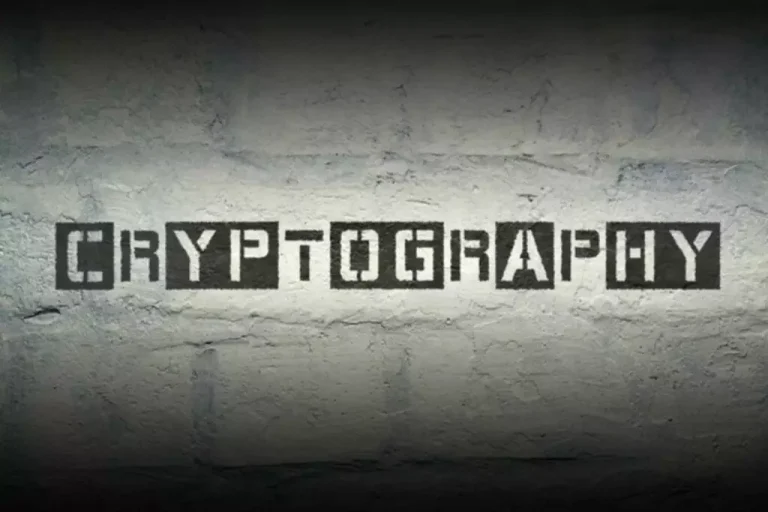Content
This category includes defunct companies that have ceased operations as well as “dark” companies with questionable management and market disclosure practices. Securities of publicly traded companies that are not willing to provide information to investors are considered highly risky. Over-the-counter (OTC) derivatives Peer-to-peer are financial contracts negotiated directly between two parties without being traded on a centralized exchange.

How Do You Trade on OTC Markets?

You should consult your legal, tax, or financial advisors before making any financial decisions. This material is not intended as a recommendation, offer, or solicitation to purchase or sell securities, open a brokerage account, or engage in any investment strategy. Smaller or newer otc markets companies often cant afford the fees charged by major exchanges, so they trade OTC instead. The major regulatory reform underway in the United States, European Union, and other developed financial markets are directly addressing these issues. In others, post-trade clearing of OTC trades is moving to clearinghouses (also known as central clearing counterparties).
What are the risks of OTC trading?

A press release may have to be issued to notify shareholders of the decision. The fact that a company meets the quantitative initial listing standards does not always mean it will be approved for listing. The NYSE, for example, may deny https://www.xcritical.com/ a listing or apply more stringent criteria. The offers that appear on this site are from companies that compensate us.
How Does an Investor Buy a Security on the OTC Market?
Over-the-counter trading can be a useful way to invest in foreign companies with US dollars, or other securities that aren’t listed on the major exchanges. When you trade over-the-counter, you can also get access to larger companies like Tencent, Nintendo, Volkswagen, Nestle, and Softbank that arent listed on major U.S. exchanges. But OTC trading does come with a few risks, including lower regulatory oversight than market exchange trading and higher volatility. Over-the-counter, or OTC, markets are decentralized financial markets where two parties trade financial instruments using a broker-dealer.
What investments can you trade OTC?
- It does not require any SEC regulation or financial reporting, and includes a high number of shell companies.
- These materials, which are available to the public on the SEC’s EDGAR database, are helpful for investors seeking to gain a thorough understanding of a company’s performance and financial health.
- Do your due diligence and find a broker that allows OTC trading, then research the industry or security you’re interested in.
- Investors are familiar with trading on an exchange such as the NYSE or Nasdaq, with regular financial reports and relatively liquid shares that can be bought and sold.
- OTC trades in exchange-listed stocks—whether occurring on an ATS or otherwise—must be reported to a FINRA Trade Reporting Facility (TRF).
Despite this, OTC market trading plays a crucial role in global finance, especially for institutions looking for bespoke solutions or access to less commonly traded assets. Although not as accessible to retail traders, it’s vital for institutional investors, corporations, and hedge funds. There are two basic ways to organize financial markets—exchange and over the counter (OTC)—although some recent electronic facilities blur the traditional distinctions.
These include price per share, corporate profits, revenue, total value, trading volume and reporting requirements. Shareholders and the markets must be kept informed on a regular basis in a transparent manner about company fundamentals. It’s a network of over 100 broker-dealers with headquarters in New York. The group prices and trades a vast range of securities and markets on the OTC markets platform.
You look to be in early on what promises like a big deal, just like other storied early investors. In addition, companies traded OTC have fewer regulatory and reporting requirements, which can make it easier and less expensive when raising capital. The company was first established in 1913 as the National Quotation Bureau (NQB). For decades, the NQB reported quotations for both stocks and bonds, publishing the quotations in the paper-based Pink Sheets and Yellow Sheets respectively. The publications were named for the color of paper on which they were printed. In September 1999, the NQB introduced the real-time Electronic Quotation Service.
An organisation can increase its visibility with institutional investors. Companies moving to a major exchange can also expect to see an increase in volume and stock price. Larger, established companies normally tend to choose an exchange to list and trade their securities on. For example, blue-chip stocks Allianz, BASF and Roche and Danone are traded on the OTCQX market. The OTC market is arranged through brokers and dealers who negotiate directly. An advantage of the OTC market is that non-standard quantities of stock or shares can be traded.
A company that’s listed on a U.S. exchange must follow disclosure rules that require it to file regular reports and financial statements with the U.S. These materials, which are available to the public on the SEC’s EDGAR database, are helpful for investors seeking to gain a thorough understanding of a company’s performance and financial health. In the United States, over-the-counter trading of stocks is carried out through networks of market makers. The two well-known networks are managed by the OTC Markets Group and the Financial Industry Regulation Authority (FINRA). These networks provide quotation services to participating market dealers.
Commission-free trading refers to $0 commissions charged on trades of US listed registered securities placed during the US Markets Regular Trading Hours in self-directed brokerage accounts offered by Public Investing. Keep in mind that other fees such as regulatory fees, Premium subscription fees, commissions on trades during extended trading hours, wire transfer fees, and paper statement fees may apply to your brokerage account. All investments involve the risk of loss and the past performance of a security or a financial product does not guarantee future results or returns.
IG International Limited is licensed to conduct investment business and digital asset business by the Bermuda Monetary Authority. Capital Com Online Investments Ltd is a limited liability company with company number B. Capital Com Online Investments Ltd is a Company registered in the Commonwealth of The Bahamas and authorised by the Securities Commission of The Bahamas with license number SIA-F245. The Company’s registered office is at #3 Bayside Executive Park, Blake Road and West Bay Street, P. O. Box CB 13012, Nassau, The Bahamas. Although it’s easy to buy OTC stocks, the tougher question to answer is whether you should buy OTC stocks. Want to explore a world of currency pairs and stock and commodity CFDs?
Banking services and bank accounts are offered by Jiko Bank, a division of Mid-Central National Bank.JSI and Jiko Bank are not affiliated with Public Holdings, Inc. (“Public”) or any of its subsidiaries. Because they trade like most other stocks, you can buy and sell OTC stocks through most major online brokers. To buy shares of an OTC stock, you’ll need to know the company’s ticker symbol and have enough money in your brokerage account to buy the desired number of shares. In the over-the-counter market, dealers frequently buy and sell for their own accounts and usually specialize in certain issues. Schedules of fees for buying and selling securities are not fixed, and dealers derive their profits from the markup of their selling price over the price they had paid. The investor may buy directly from dealers who are willing to sell stocks or bonds that they own or with a broker who will search the market for the best price.
Swiss food and drink company Nestle (NSRGY 0.17%) is an example of a major company that trades OTC in the U.S. While it’s listed on the SIX Swiss Stock Exchange, the company’s shares are only available as ADRs through the Pink Sheets in the U.S. Financial markets are complex organizations with their own economic and institutional structures that play a critical role in determining how prices are established—or “discovered,” as traders say. These structures also shape the orderliness and indeed the stability of the marketplace. In the United States, over-the-counter trading in stock is carried out by market makers using inter-dealer quotation services such as OTC Link (a service offered by OTC Markets Group). Suppose you’re an investor seeking high returns on your investments, so you’re willing to dip into the OTC markets if you can find the right stock.
OTC medical devices may be used in any setting where the consumer can properly use the device as directed by the product labeling. For instance, the device may be used outside the home in an office, school, hospital, ambulatory surgical center, nursing home, outpatient treatment facility, or other health care facility. An example of OTC trading is a share, currency, or other financial instrument being bought through a dealer, either by telephone or electronically.
The exchange rate is fixed or locked using OTC derivatives, thus allowing the trading parties to hedge against currency rate fluctuations. Import and export companies can benefit from using OTC currency derivatives. These derivatives derive their value from interest rates, interest rate instruments, or interest rate indices.

